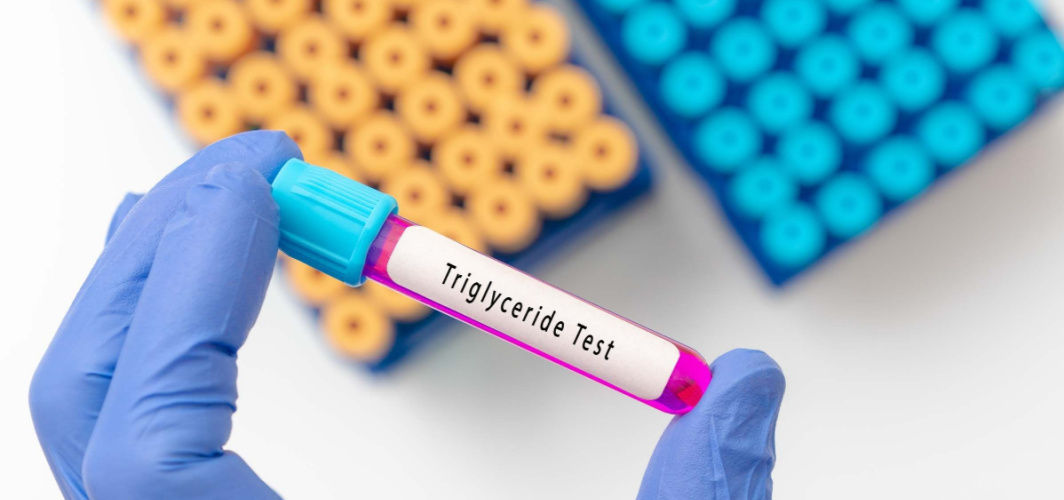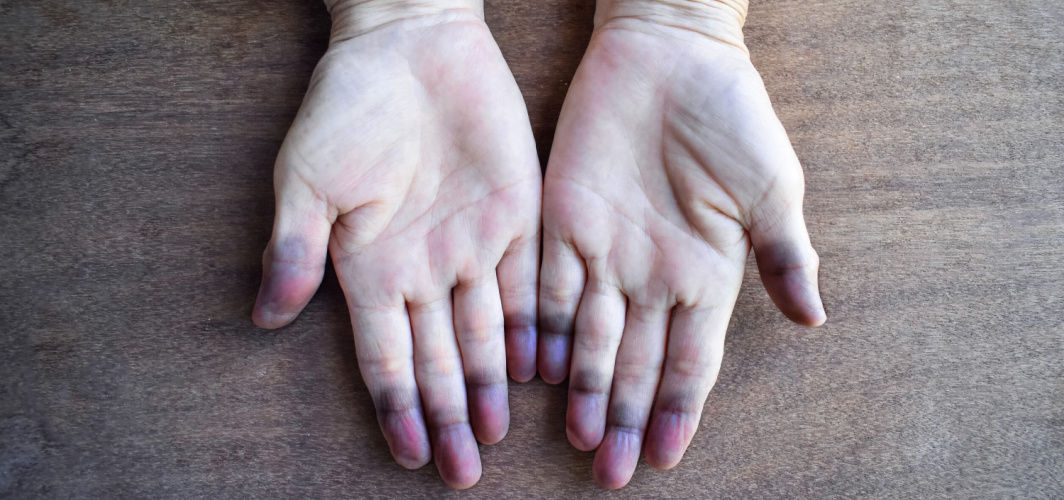Heart Conditions
7-Day Diet to Lower Triglycerides Naturally
7 min read
By Apollo 24|7, Published on - 14 June 2023, Updated on - 06 August 2024
Share this article
0
0 like

Triglycerides, a type of fat found in our body, have gained increasing attention worldwide due to their impact on cardiovascular health. As unhealthy dietary habits, sedentary lifestyles, and obesity rates continue to rise, the prevalence of elevated triglyceride levels has become a significant global health concern. To combat this, we have prepared a 7 day diet to lower triglycerides specifically designed to lower triglycerides while guiding nutrition, food choices, and different diet types. By implementing these recommendations, individuals can proactively manage their triglyceride levels and promote overall health and well-being.
NOTE: You Must Consult Your Doctor/Dietician Before Trying Any New Diet.
Avoid out-of-pocket healthcare expenses with Apollo 24|7's health insurance plan with premium as low as Rs.1 per day.
What are Triglycerides?
Triglycerides are a common type of fat found in the blood that is stored by the body for later use. Though the function of triglycerides is to provide energy, high levels can raise the risk of insulin resistance, obesity, pancreatitis, type 2 diabetes, and cardiovascular disease. Maintaining healthy triglyceride levels is important to reduce the chances of developing these health problems. One can check their triglyceride levels with a lipid profile test.
To know your triglyceride levels, Book Apollo’s Lipid Profile Test
The triglyceride levels can be measured as:
- Borderline high: 150-199 mg/dL
- High: 200-499 mg/dL
- Very high: 500 mg/dL or above
High triglyceride levels increase the risk of cardiovascular diseases, including heart attacks and strokes, significantly.
What Causes High Triglycerides?
High triglycerides can result from several factors, including:
- Poor Diet: Consuming foods high in refined carbohydrates, sugars, and unhealthy fats.
- Sedentary Lifestyle: Lack of physical activity and exercise.
- Obesity: Excess body weight, particularly abdominal obesity.
- Excessive Alcohol Consumption: Regular and excessive alcohol intake.
- Smoking: Tobacco use can contribute to elevated triglyceride levels.
- Underlying Health Conditions: Diabetes, hypothyroidism, kidney disease, and liver disease.
- Genetics: Inherited factors can predispose some individuals to high triglycerides.
How to Lower Triglycerides Naturally?
Are you wondering how to lower triglycerides naturally? It is important to adopt a healthy lifestyle, which includes:
- Consuming a balanced diet rich in fruits, vegetables, whole grains, lean proteins, and healthy fats
- Practising regular physical activity for at least 15 mins every day
- Weight management
- Avoiding excessive alcohol and sugary foods
- Quitting smoking
- Manage stress through meditation and yoga
How To Lower Triglycerides Through Diet?
Understanding how to lower triglycerides through diet is crucial for maintaining heart health and overall well-being. By adopting a diet to reduce triglycerides, you can effectively manage and improve your triglyceride levels naturally.
To manage triglyceride levels, focus on consuming the following foods:
- Omega-3 Fatty Acid Rich Foods: Include sources such as salmon, sardines, mackerel and flaxseeds in your diet.
- Leafy Vegetables: Consume green beans, spinach, kale and other leafy greens.
- Seasonal Fruits: Add citrus fruits like oranges, grapefruits, lemons and tangerines, as well as berries such as strawberry, blueberries and raspberries.
- Low-Fat or Fat-Free Dairy Products: Opt for skim milk, low-fat yoghurts and reduced-fat cheese.
- High-Fibre Whole Grains: Incorporate foods like oats, quinoa, barley, and brown rice into your diet.
- Fibre-Containing Unsaturated Fats: Incorporate avocados, olive oil, and nuts such as almonds and pistachios which provide healthy unsaturated fats and fibre.
You must also restrict alcohol intake and sugar consumption to no more than 10% of your total daily calorie intake. Carbohydrates should be kept to 50-60% or fewer of total daily calories, while dietary fat should be limited to 25-35%. And by choosing unsaturated fats from plant oils, nuts, and seeds over saturated and trans fats usually found in animal products and processed foods is how to lower triglycerides through diet.
Diet To Reduce Triglycerides
Certain diet types can help lower triglyceride levels. These include:
- Low Carbohydrate Diet: Avoid refined carbohydrates and opt for high-fibre carbs like vegetables, beans, and whole grains.
- High-Fibre Diet: Increasing dietary fibre intake slows down the absorption of fat and sugar, thereby reducing triglyceride levels.
- Oily Fish: Consuming fish high in omega-3 fatty acids, such as salmon, tuna, sardines, and mackerel, can help lower triglycerides.
- Vegetarian Diet: While not directly linked to lower triglycerides, a well-planned vegetarian diet can benefit overall health.
Foods To Avoid For High Triglycerides
To manage high triglyceride levels effectively, it's essential to avoid certain foods that can exacerbate the condition.
Here’s a list of foods to avoid for high triglycerides:
1. Sugary Foods and Beverages: Limit intake of sugary snacks, sodas, and desserts, as excess sugar can raise triglyceride levels.
2. Refined Carbohydrates: Reduce consumption of white bread, pasta, and pastries, as they can spike triglycerides.
3. Trans Fats: Avoid foods containing trans fats, such as processed snacks and fried foods, as they can increase triglyceride levels.
4. Saturated Fats: Limit intake of saturated fats found in fatty meats, full-fat dairy products, and certain oils, as they can elevate triglycerides.
5. Alcohol: Limit alcohol consumption, as it can significantly raise triglyceride levels, especially in excessive amounts.
6. High-Fructose Corn Syrup: Foods containing high-fructose corn syrup, commonly found in sweetened beverages and processed foods can be considered as one of the certain foods to avoid for high triglycerides, as it can contribute to high triglycerides.
7 Day Diet to Lower Triglycerides
Here is a 7 day diet to lower triglycerides for those wondering how to lower triglycerides naturally. Remember to adapt the plan according to your individual calorie and nutritional needs. If you have a pre-existing medical condition, it is advised to consult with your doctor before changing your diet.
Other Ways to Lower Triglycerides
In addition to following a diet to reduce triglycerides, there are other effective strategies you can incorporate into your routine to help lower triglyceride levels:
1. Exercise Regularly
Engaging in regular aerobic exercises, such as jogging, cycling, or swimming, can have a positive impact on triglyceride levels. Perform at least one hour of moderate-intensity exercise per day as it helps increase the production of enzymes that break down triglycerides and promote overall cardiovascular health.
2. Consider Taking Supplements
Discussing the use of certain supplements with your doctor may be beneficial in managing triglyceride levels. Some supplements that have shown potential in reducing triglycerides include curcumin, fish oil, fenugreek, guggul, and garlic extract. However, it's important to consult with your doctor before you start any new supplements, as they can interact with medications or have potential side effects.
Takeaway
To sum it up, ‘How to lower triglycerides naturally?’ is of the most asked questions which can be achieved through dietary modifications, regular exercise, and, in some cases, supplements. Following a healthy meal plan, like the 7-day plan provided, along with other lifestyle changes, can help manage triglyceride levels and promote overall health. Remember to consult with a healthcare professional for personalised advice and guidance.
Heart Conditions
Frequently Asked Questions
Can high triglycerides have long-term effects on health?
Can high triglycerides have long-term effects on health?
Are triglyceride levels of 250 considered dangerous?
Are triglyceride levels of 250 considered dangerous?
Can high triglycerides cause liver damage?
Can high triglycerides cause liver damage?
How to lower triglycerides naturally and effectively?
How to lower triglycerides naturally and effectively?
How long does it take to lower triglyceride levels?
How long does it take to lower triglyceride levels?
Leave Comment
Recommended for you

Heart Conditions
7 Signs Of Heart Disease That Appear On The Skin
Heart disease is not a disorder that occurs suddenly. It tends to build itself over months and years. During this time your skin might show signs and symptoms of an underlying heart condition. You mustn't take these signals lightly and seek immediate medical care.

Heart Conditions
Low Blood Pressure (Hypotension): Symptoms, Causes, and Treatment
Abnormally low blood pressure (hypotension) can lead to dizziness and loss of consciousness. Chronically low blood pressure can also signal an underlying health condition such as an inadequate flow of blood to vital organs.

Heart Conditions
ECG vs Echo: Know the Difference Between Electrocardiogram vs Echocardiogram
Electrocardiogram (ECG) and echocardiogram (Echo) tests are non-invasive diagnostic procedures that aid in diagnosing and managing various cardiac conditions for improved overall heart health. While they sound similar, there are many major differences between the two tests. Read on to explore the distinctions between an ECG and an echo test.
Subscribe
Sign up for our free Health Library Daily Newsletter
Get doctor-approved health tips, news, and more.
Visual Stories

7 Tips to Manage Hypertension
Tap to continue exploring
Recommended for you

Heart Conditions
7 Signs Of Heart Disease That Appear On The Skin
Heart disease is not a disorder that occurs suddenly. It tends to build itself over months and years. During this time your skin might show signs and symptoms of an underlying heart condition. You mustn't take these signals lightly and seek immediate medical care.

Heart Conditions
Low Blood Pressure (Hypotension): Symptoms, Causes, and Treatment
Abnormally low blood pressure (hypotension) can lead to dizziness and loss of consciousness. Chronically low blood pressure can also signal an underlying health condition such as an inadequate flow of blood to vital organs.

Heart Conditions
ECG vs Echo: Know the Difference Between Electrocardiogram vs Echocardiogram
Electrocardiogram (ECG) and echocardiogram (Echo) tests are non-invasive diagnostic procedures that aid in diagnosing and managing various cardiac conditions for improved overall heart health. While they sound similar, there are many major differences between the two tests. Read on to explore the distinctions between an ECG and an echo test.